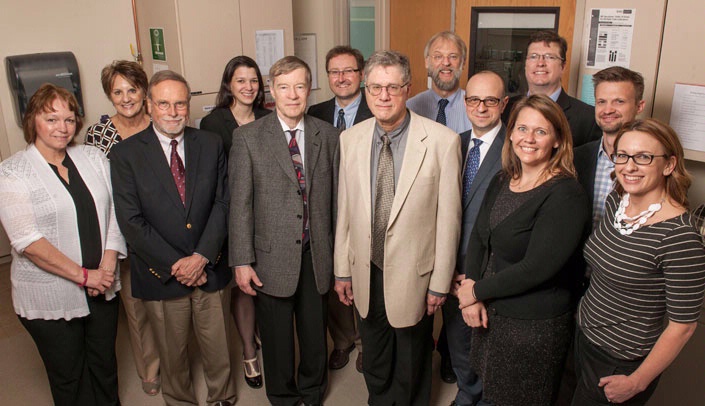The National Ebola Training and Education Center (NETEC) has launched its website, which is designed to help create a repository of resources for health care facilities and health departments.
“The website will help us push out needed information, such as background information on Ebola, some new information on MERs, and maybe other potentially significant viruses or diseases that might arise. It will serve as a forum to get information out quickly to this new infrastructure we’re developing across the United States,” said Shelly Schwedhelm, executive director, emergency preparedness & infection prevention services at Nebraska Medicine.
The website launch is one in a series of goals for NETEC, a collaboration between Emory University, UNMC and Bellevue Hospital Center in New York.
Funded by the Office of the Assistant Secretary for Preparedness and Response (ASPR) and Division of Healthcare Quality Promotion (DHQP)of the Centers for Disease Control and Prevention, the goal of the NETEC is to increase the competency of health care and public health workers and the capability of health care facilities to deliver safe, efficient, and effective care to patients with Ebola virus disease and other highly infectious diseases through a nationwide and regional network.
Schwedhelm praised IT professionals Dan Moser, Lee Trant, Max Thacker, and Anne Faylor for their work on the new website and NETEC technology needs.
“Our next step, again with the help of our IT folks, is to link a new learning management system with the website, so people can take courses to better educate themselves as well as get continuing education credit,” Schwedhelm said. “In addition to that, our team is also developing a process to where others across the United States could actually request a site visit using a process via the website.”
Through the five-year project period and in collaboration with ASPR, CDC, and other stakeholders, the NETEC will:
- Develop metrics to measure facility and health care worker readiness to care for patients with Ebola virus disease.
- Conduct peer review and readiness assessments of regional and state Ebola Treatment Centers.
- Create and maintain a comprehensive suite of educational materials (e.g., curricula, just-in-time training, templates, train-the-trainer modules, tools, simulations, online resources, webinars) for guidance related to care of patients with possible Ebola.
- Support public health departments and health care facilities through the provision of training and technical assistance.
- Conduct Ebola preparedness courses to cover the many aspects of managing a facility and/or public health jurisdiction tasked with assessing and/or treating Ebola virus disease patients.
